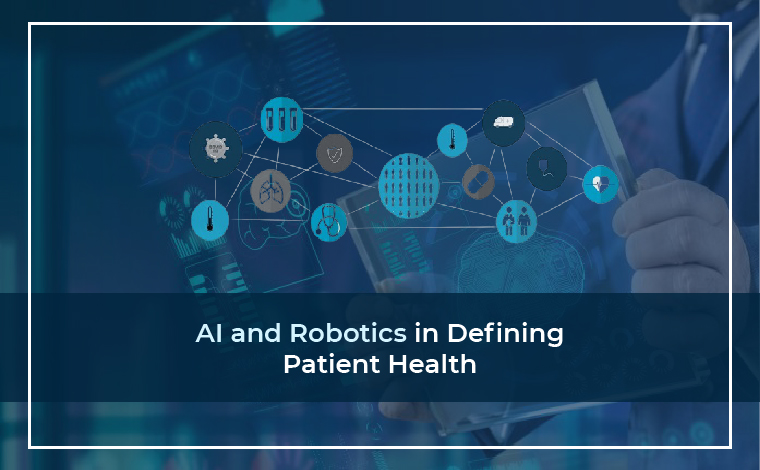
As future tech erupts in several industry verticals, healthcare is frequently a puzzle that requires further unraveling and experimentation. Healthcare, unlike other industries, is not a precise cut. It is a truly multidimensional discipline that incorporates, to name a few pieces of the complex puzzle, conventional medicine, healthcare experts, diseases, patients, attitudes and behaviors, and systematic issues. It is not easy to bring innovations and technological advancements to address all or some of these aspects.
The future has arrived. Robotics and Artificial Intelligence (AI) may fill the void. AI is becoming more sophisticated at doing what humans do, rather more proficiently, quickly, and cheaply. Both AI and robotics have tremendous potential in healthcare. AI and robotics have become an integral part of our healthcare ecosystem by contributing immensely to our daily lives. You can see the overwhelming facts, including aging populations putting a strain on medical systems.
As a result, there are insufficient people in adult social care to present the standard of care that such patients require. The use of robots and artificial intelligence in healthcare isn’t confined to obscure films and TV shows. Robots and artificial intelligence (AI) are increasingly becoming useful in the clinical space with more and more digitization of healthcare and the growing prevalence of digital health. From genetic screening and robotic surgery to cancer data collection and analysis, AI and robotics are making strides in healthcare. In dermatology, AI is already being used in practice, with healthcare experts using an experimental mobile version to diagnose skin cancer.
How can Robots help the Aging Population?
- With an aging population putting pressure on the healthcare system, the emphasis has optimized resources and productivity. It offers less time for the equally important, softer, caring side of healthcare.
- Patients who are discharged from the hospital and go home to care for themselves, with only sporadic follow-up medical appointments, may find it difficult to stick to their care plans. They may be unsure of what to do or how to do it; they might very well feel better and thus decide to stop taking their medications.
- It can be true for the elderly who live alone and may overlook or become unmotivated. Although this softer side of care is less logical and more about relationship building and behavioral nudges, AI plays a role in this domain.
- AI can transform healthcare and resolve the influx of elderly patients seeking care. AI could enhance the welfare of clinicians by allowing them to focus more on the patient while AI-powered machines take care of the rest.
- At the most basic level, AI chatbots or talking robots at home can assist patients in staying on top of their care plans. Intelligent systems that remind seniors when to take medicine, see doctors, and even eat can help alleviate the anxiety and confusion that many of them experience.
- Aside from that, AI-powered healthcare robots can provide some camaraderie for lonely seniors. Social robots can indeed tailor their interactions to start nudging self-caring behaviors. Incorporating social robots with sensing devices can help seniors manage illnesses, making them feel more relaxed and confident about living alone.
- One of the most common concerns seniors have when living alone is trip and fall, and no one will notice. Artificial intelligence (AI) devices that can predict and prevent falls are being developed. It may give seniors with disorders like Parkinson’s disease the confidence to go outside rather than being trapped at home due to the fear of falling.
- Sensors in the home can also detect when someone has fallen or has been involved in other fatalities at home and can alert emergency services for assistance, provide emotional support, and build confidence in residing well in the household.
Final Words
The power of AI and healthcare robotics appears to be found in conjunction with applications. Clinical applications will continue to develop and become more effective at keeping people alive. Empathy-based intelligent systems to support the compassionate side of care could help us avoid the need for clinical treatment entirely. SimboAI has transformed the vision into a reality.
With further innovation, it may continue to serve digitized healthcare in its unique way! The economic case for AI in the continuum of care could be very compelling, with exciting and promising effects on health outcomes.
